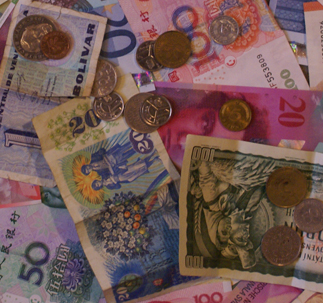Active enforcement against foreign bribery significantly decreased since 2018, according to an anti-corruption pressure group. The share of global exports from countries that actively enforce against foreign bribery and related money laundering is down by more than a third.
Only four out of 47 countries, which make up 16.5 per cent of global exports, actively enforced legislation against foreign bribery, compared to seven countries and 27 per cent of global exports in 2018. According to Transparency International (TI), the biggest global exporters with the worst records are China, Japan, the Netherlands, South Korea, Hong Kong, Canada, India and Mexico. In fact, most countries assessed (34 out of 47), conducted practically no enforcement of their foreign bribery laws.
Delia Ferreira Rubio, Chair of Transparency International said: “Money lost to foreign bribery wastes millions of dollars that could otherwise go to lifesaving services like health care. Too many governments choose to turn a blind eye when their companies use bribery to win business in foreign markets. G20 countries and other major economies have a responsibility to enforce the rules.”
China, the world’s largest exporter, failed to open a single investigation into foreign bribery between 2016 and 2019, despite Chinese companies appearing in multiple scandals and investigations by other countries, TI says. Two other non-OECD major exporters – Hong Kong and India – did not open a single foreign bribery investigation from 2016 to 2019. Singapore opened only one investigation and concluded one case with sanctions during the past four years. The US, UK, Switzerland and Israel are the only countries assessed that continue to actively enforce against foreign bribery, the report says.
Since 2018, four countries, accounting for 12.4 per cent of global exports, declined in performance, while six countries, accounting for 6.8 per cent of world exports, improved.
Germany, which is the third largest exporter (with 7.6 per cent of global exports) pursued fewer investigations and closed fewer cases against graft overseas. Similarly, Italy, a top-10 exporter (2.6 per cent), also declined, as did Norway. Conversely, France and Spain, which account for 3.5 per cent and two per cent of global exports respectively, improved their performance.
Gillian Dell, Senior Advisor at Transparency International and lead author of the report said: “Despite big corruption cases involving companies like Airbus, Odebrecht, and many others, our research shows that many countries are barely investigating foreign bribery. Unfortunately, it’s all too common for businesses in wealthy countries to export corruption to poorer countries, undermining institutions and development. And no country is immune.”
About the report
TI’s report rates the performance of 47 leading global exporters, including 43 countries that are signatories of Organisation for Economic Co-operation and Development (OECD) Anti-Bribery Convention. TI calls on all countries that are signatories to that Convention, as well as the other major global exporters, to do more against foreign bribery. Read the 46-page report at: https://www.transparency.org/en/exporting-corruption.









